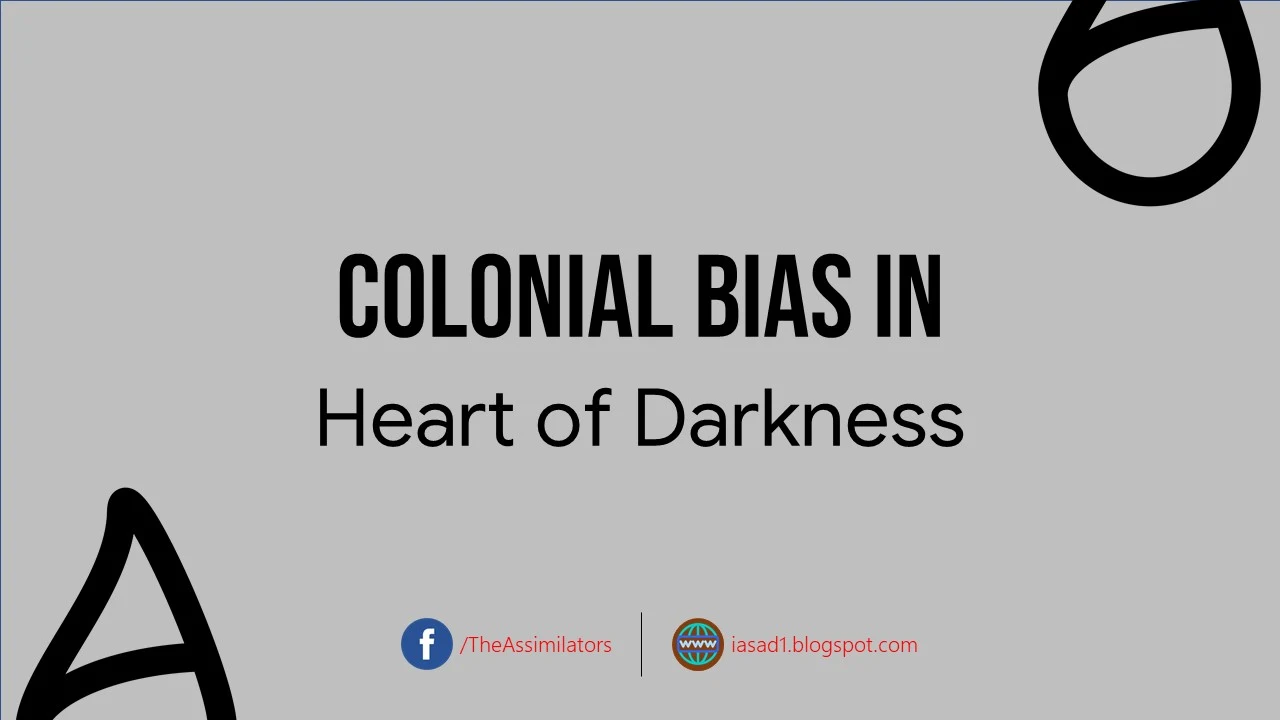Introduction
Heart of Darkness is a defining work of Joseph Conrad which appeared in 1899. After the publishing of this novella, it has received a fair share of admiration from the literary giants like T. S. Eliot and Ernest Hemingway. The novella is famous for its distinctive treatment of colonialism and imperialism of Belgium over the dark continent of Africa. On one side, the novella is praised for the condemnation of Imperialism while the opponents find this novella favouring the European Imperialism. Before discussing at length about the particular problem in the novella, first, we have to make it clear that what imperialism actually is. In simple terms, imperialism is the utilization of the resources (both people and their property) of the weak nation by the strong and developed nation. A common example of imperialism is the British colonization of the Indian Subcontinent.
Examples against Imperialism
The very first example of Conrad's condemnation of Imperialism is the title of the novella. He indirectly considers imperialism as a heart of darkness. It is a heart of darkness because it ultimately leaves both the colonizers and the colonized in the deepest pit of the darkness of failure and problems. For instance, the Britishers came to the Indian Subcontinent as traders and reformers but when they left, they left with an egg on their face and the rushed division lead to a mass massacre that history seems unable to forget. And there have been three major wars between the two who were once one.
Turning back to the novella, it condemns colonization of the African people and the Belgian exploitation of their ivory and the people. The Belgian trade masters arrived at the African continent to 'civilize' the natives but they themselves became the victims of primitive desires. Conrad condemns their merciless killing of the natives and extortion of ivory for their own luxury.
Examples in Favour of Imperialism
The other side of this novella is rather controversial as it displays Conrad favouring imperialism. Kurtz' dying words are a great contribution to it as Marlow, the narrator of the novel suggests that his dying words denote to the purgation of his soul. The very idea of the purgation of Kurtz' soul from his evil doings gives a slightly stouter affirmation of Marlow (or Conrad) favouring imperialism. Another instance comes in the form of the painting on Kurtz' cottage painted by himself. The painting shows a woman holding a torch. This painting is a direct symbol of the spreading the light of civilization to the ones who are not cultured. It is one of the prime motives behind imperialism and the painting of Kurtz openly supports it. Due to the very examples from the text, this novella is regarded as a piece of work that favours imperialism.
Conrad's own Experience of Imperialism
Conrad grew up in Russian Imperialism on Poland. His parents were an active members of the movement of freedom. Therefore, he and his family were exiled to Siberia. Such banishment must have left a lasting hatred for imperialism. Therefore, he chose the profession to voyage on the sea because he found openness and freedom in it. He voyaged to Africa in 1890 at a time when it was ruled by many colonial powers but his cannon of critique was pointed at Leopold, a ruthless Belgian ruler who used the Central African portion as his personal property. Upon seeing the plight of the natives and having himself experienced the cold banishment, the writing of this novella is surely an outcome of his detest of imperialism to a greater extent.
Conclusion
It is difficult to reach to a definitive conclusion that Heart of Darkness favours imperialism or is against it. But it surely portrays the sombre picture of the colonized natives.
Sources and Suggested Readings
- Critical Studies of Heart of Darkness - Famous Products - Page 264
- https://www.newyorker.com/magazine/1995/11/06/the-trouble-with-heart-of-darkness


